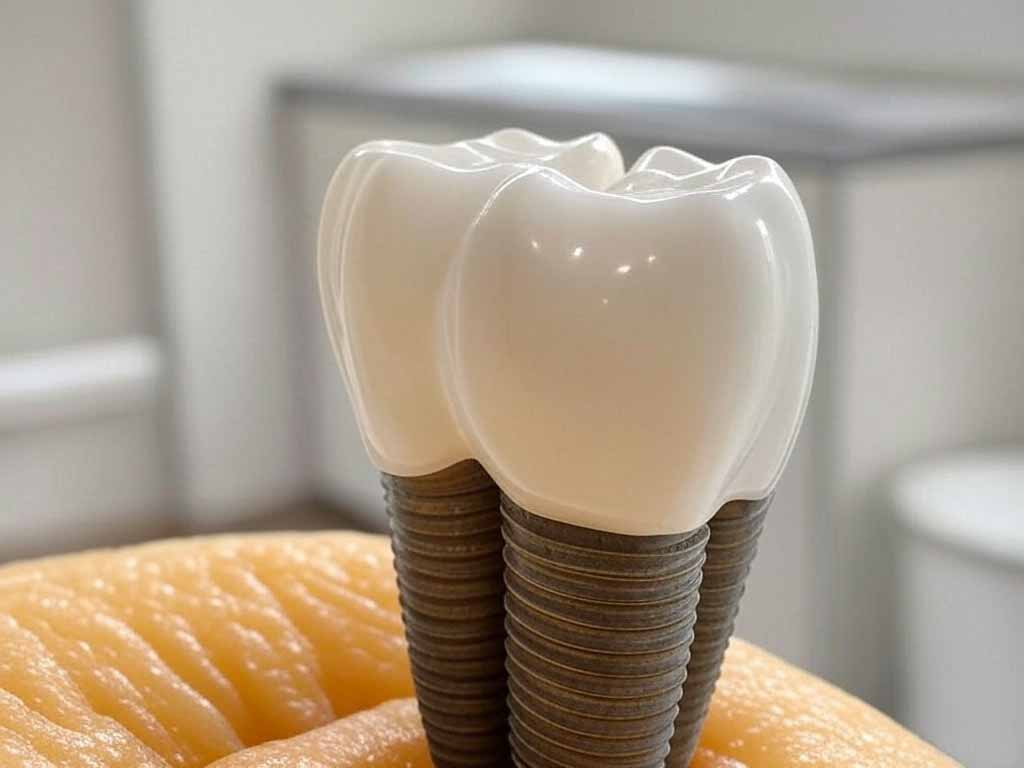Dental implants are one of the most effective solutions for replacing missing teeth, offering durability, natural appearance, and improved functionality. However, a common concern for many is, “Do dental implants hurt?” Understanding the procedure, what discomfort to expect, and how to manage it can help you approach dental implant surgery with confidence. In this detailed guide, we’ll explore the process and address all your concerns about pain during and after getting dental implants.
What Are Dental Implants?
Before diving into the question “Do dental implants hurt?” it’s important to understand what dental implants are. A dental implant is a titanium post surgically inserted into your jawbone to serve as a foundation for a replacement tooth, such as a crown, bridge, or denture.
Key Steps of a Dental Implant Procedure:
- Initial Consultation: Your dentist evaluates your oral health, takes X-rays, and creates a personalized treatment plan.
- Implant Placement: A titanium implant is surgically placed into your jawbone.
- Osseointegration: Over several months, the implant fuses with the jawbone, creating a stable base.
- Abutment Placement: A connector (abutment) is attached to the implant.
- Crown Placement: A custom crown is placed, completing the restoration.
While the process may sound intense, advances in dentistry have made it highly tolerable for most patients. But still, the pressing question remains: Do dental implants hurt?
Do Dental Implants Hurt During the Procedure?
The short answer is no, dental implants do not hurt during the procedure, thanks to modern anesthesia techniques. Here’s why:
- Local Anesthesia: The implant site is thoroughly numbed, so you won’t feel any pain during the surgery. You may feel some pressure or vibrations as the dentist works, but these sensations are typically not uncomfortable.
- Sedation Options: If you’re anxious or undergoing a complex procedure, sedation (oral, IV, or general anesthesia) may be offered to help you relax.
What to Expect During Surgery
Most patients report feeling calm and comfortable throughout the implant placement. With local anesthesia and sedation, pain is effectively managed during the procedure. If you’re nervous about pain, discussing sedation options with your dentist can give you peace of mind.
Do Dental Implants Hurt After the Procedure?
While the procedure itself is virtually painless, you may experience mild to moderate discomfort once the anesthesia wears off. This discomfort is part of the healing process and is generally manageable with proper care.
Common Post-Surgical Symptoms:
- Mild Pain or Discomfort: You might feel soreness or tenderness at the implant site. The pain is usually similar to that of a tooth extraction.
- Swelling: Swelling of the gums or face near the implant site is normal and peaks within 48 hours.
- Bruising: Mild bruising around the surgical area may occur, especially if multiple implants are placed.
- Bleeding: Minimal bleeding is common immediately after the surgery.
These symptoms are temporary and typically subside within a week. For most patients, any pain or discomfort is significantly less than expected.
How to Manage Pain After Dental Implants
If you’re still wondering, “Do dental implants hurt after surgery?” rest assured that most post-operative discomfort can be easily managed with proper aftercare:
Pain Management Tips:
- Medication: Your dentist may prescribe painkillers or recommend over-the-counter options like ibuprofen or acetaminophen.
- Ice Packs: Apply ice packs to your cheek near the surgical site to reduce swelling and numb the area.
- Soft Foods: Stick to a soft diet (yogurt, soups, mashed potatoes) for the first few days to avoid putting pressure on the implant.
- Rest: Avoid strenuous activities or exercise for a few days after surgery.
- Saltwater Rinse: Use a warm saltwater rinse to keep the implant site clean and promote healing, but avoid vigorous rinsing.
How Long Does Pain Last After Dental Implants?
For most patients, pain and discomfort diminish significantly within the first few days. Mild soreness may linger for up to a week, especially when chewing or touching the area. If you experience pain beyond this period or if it worsens, contact your dentist immediately, as this may indicate an issue like infection.
Factors That May Affect Pain Levels:
- Number of Implants: Single implant procedures usually cause less discomfort than multiple implants.
- Bone Grafting: If bone grafting was performed to strengthen your jawbone, it may add to recovery time and discomfort.
- Individual Pain Tolerance: Pain perception varies from person to person, but most patients report manageable discomfort.
Do Dental Implants Hurt in the Long Term?
After the initial healing phase, dental implants should not cause pain. If you experience ongoing discomfort months or years after the procedure, it may indicate a complication, such as:
- Infection around the implant (peri-implantitis)
- Implant failure or loosening
- Nerve damage (rare)
Regular check-ups with your dentist are crucial to ensuring the long-term success of your implants and addressing any potential issues early.
Comparing Dental Implants to Other Dental Procedures
If you’re concerned about pain, you may wonder how dental implants compare to other procedures like extractions or root canals. Most patients find dental implants to be less painful than they anticipated, with discomfort levels similar to or even lower than other common dental surgeries.
Conclusion: Do Dental Implants Hurt?
The question, “Do dental implants hurt?” is one of the most common concerns among patients considering this procedure. The answer largely depends on your pain tolerance and how well you follow post-operative care instructions. Here’s a quick recap:
- During the Procedure: No, dental implants do not hurt, thanks to effective anesthesia and sedation options.
- After the Procedure: Mild to moderate discomfort is normal but manageable with pain relief and proper aftercare.
- Long-Term: Implants should not cause pain once healed. Any persistent discomfort should be addressed by your dentist.
With modern techniques and experienced professionals, dental implants are a comfortable and highly effective solution for missing teeth. If you’re considering this procedure, speak with your dentist about your concerns—they’ll ensure you’re informed and comfortable every step of the way.

